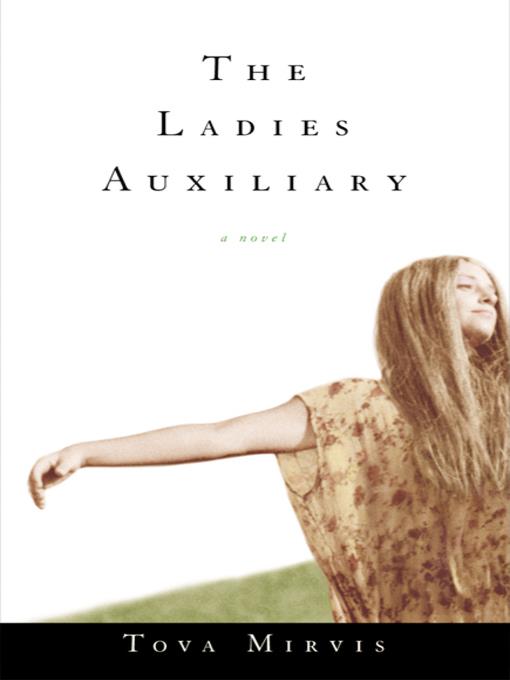
The Ladies Auxiliary
A Novel
- اطلاعات
- نقد و بررسی
- دیدگاه کاربران
نقد و بررسی

October 18, 1999
The world of this confident, insightful debut novel is the tightly knit Orthodox Jewish community of Memphis, Tenn., a social structure that unravels when an unconventional New York convert settles there with her five-year-old daughter. Newly widowed Batsheva Jacobs is both shockingly modern and fervently spiritual. She lovingly raises her daughter, Ayala, in the Orthodox tradition, but she sings loudly and enthusiastically at shul (perhaps a sign of unseemly ego), visits the mikvah to cleanse herself (an act that raises eyebrows, since she has no husband), and she wears flowing clothes that show her figure--all of which is noted suspiciously by the local women whose common goal is to preserve tradition. In Memphis, where Shabbos dinner includes fried chicken and black-eyed peas, that task isn't easy. Taking a job as art teacher at the girls' school, blonde, green-eyed Batsheva is soon a beloved confidante of the community's female teenagers, but when she allows them to wear makeup and miniskirts on a ski trip, and becomes close to the Rabbi's beloved 22-year-old son, she's the subject of cruel gossip. After one of her students runs away with a non-Jewish, older boyfriend, Batsheva is blamed. The narrator, one of the housewives fiercely protective of the insular community, tells the story in third-person plural: "little changed in this city where we have always lived"--a statement rendered untrue, of course, as the community breaks into discord. Caught in the middle are Ayala and the respected and goodhearted Mimi Rubin, the rabbi's wife, who begins to believe rumors about her son's attachment to Batsheva, and panics. Generous with humor and compassion, Mirvis paints tenderly nuanced portraits of strong female characters while scrutinizing an entrenched religious subculture whose traditions are threatened by modern temptations. Guilt, passion, prejudice, loneliness and independence--common themes in Jewish literature--are explored with sensitivity in a gentle story that captures its milieu with tolerant understanding, and plucks the heartstrings. Agent, Nicole Aragi. 7-city author tour.

September 15, 1999
Life in Memphis's Orthodox community is as it always has been, until a free-spirited widow arrives with her young daughter. Now alone in the world, Batsheva is looking for a close-knit community and has heard that Memphis, the hometown of her late husband, is pleasant. Uninhibited and artistic, she raises suspicion immediately among the Orthodox women in the community. A convert to Judaism, Batsheva observes the holidays and rituals with more joy and abandon than some believe appropriate. When she becomes the art teacher at the Jewish school, the teenage girls finally have a sympathetic ear. Unfortunately, their rebelliousness and the decision of the rabbi's son to leave yeshiva have to be blamed on someone. As the outsider, Batsheva becomes a scapegoat for all the ills in the community. A well-wrought tale of fear and intolerance that is universal.--Kimberly G. Allen, MCI Corporate Information Resources Ctr., Washington, DC
Copyright 1999 Library Journal, LLC Used with permission.

October 1, 1999
When young widow and Jewish convert Batsheva Jacobs and her five-year-old daughter Ayala move into the Memphis, Tennessee, neighborhood where her husband grew up, their arrival sends shock waves through the small and tightly knit Orthodox community. The women who narrate the novel, in one voice, fear that Batsheva's brand of Orthodox Judaism--spirited and innovative--and the close relationship she soon develops with a group of high-school girls will corrupt their children and leave them dissatisfied with the dictates of their religion. Events come to a head when a teenage girl runs away and the rabbi's son announces that he is having strong doubts about his commitment to an Orthodox life. Mirvis's first novel is filled with affectionately described scenes of Jewish life, including shabbos dinners and holiday celebrations; but the dilemma over how much change a religion can absorb before it loses its heart and soul--and its children--is one that applies to any creed. Readers who enjoyed Pearl Abraham's "The Romance Reader" (1995) and Allegra Goodman's "Kaaterskill Falls" (1998) will want to read this. ((Reviewed October 1, 1999))(Reprinted with permission of Booklist, copyright 1999, American Library Association.)




دیدگاه کاربران